#Edward the Elder
Explore tagged Tumblr posts
Text









Instagram Guide from James Northcote's Instagram.
This guide has been deleted so I am so glad I saved these.
#the last kingdom#instagram#uhtred#alexander dreymon#sihtric#arnas fedaravicius#aethelflaed#millie brady#finan#mark rowley#osferth#ewan mitchell#young uhtred#finn elliott#aelswith#eliza butterworth#aldhelm#james northcote#edward the elder#timothy innes#aethelwold#harry mcentire#photography#photographer#tlk bts#behind the scenes#northcotej photography
166 notes
·
View notes
Text

Full design of Edward, really happy how he turns out ^^
#edward the blue engine#edward the elder#ttte#thomas and friends#ttte humanized#thomas the tank engine#offbeat03
391 notes
·
View notes
Text
Despite her indisputable agency and successes as ruler of the Mercians, the title of ‘queen’ eluded Æthelflæd. [...] Her feats were adjudged by Irish, Welsh, and Anglo-Norman chroniclers as worthy of the title, but in contemporary West Saxon and Mercian sources Æthelflæd is known as the ‘Lady of the Mercians’. This title was not an indictment of her merits, but rather a reflection of Mercia’s relative status within the context of West Saxon hegemonic expansion. […] To all intents and purposes, every indication within contemporary West Saxon and Mercian sources is that Æthelflæd was not viewed as a queen, that her subordination to her brother [Edward the Elder of Wessex] was well known, despite her having garnered immense authority as the Lady of the Mercians.
— Matthew Firth, Early English Queenship, 850-1000: Potestas Reginae
Æthelflæd's role as co-ruler in the tenth century [...] takes on an element of pragmatism. There was no male heir to the rulership of Mercia, and presumably no prospect of this given either Æthelflæd's abstinence or Æthelred's illness. In turn, their daughter Ælfwynn would only have been around 12 years old at the turn of the tenth century, thus representing no reasonable alternative to her father’s rule. For Edward, annexation of Mercia was not a resolution to this problem, especially with Aethelred still alive, no matter his physical condition. This would have risked rebellion in Mercia and conflict between the two kingdoms, which would have rendered both vulnerable and jeopardised the gains that had been made against the Danes in preceding decades. For Æthelred and Edward, Æthelflæd's promotion to co-ruler served a useful political artifice. It maintained the status quo, giving the semblance of Æthelred's continued involvement in governance, even if those powers in practice devolved to Æthelflæd. This then avoided any potential power vacuum developing during Æthelred's convalescence, it placed an individual with personal loyalty to both rulers at the head of Mercian government, and it ensured a succession tolerable to both Edward and the Mercian elites in the case of Æthelred's death. In short, Æthelflæd's rise to power preserved political stability. It remains, however, that in all extant diplomatic evidence for the couple’s rule prior to 911, this was formalised as co-rule and a tradition of this, as codified in Æthelred and Æthelflæd's charters, entered subsequent cultural memory.
Although Æthelflæd was well positioned to take over governance of Mercia upon Æthelred's death, this did not mean that the Mercian ruler’s passing went unnoticed in Wessex. Æthelred's death represented a shift in the West Saxon–Mercian political dynamic, and Edward was poised to take advantage. According to the Chronicle, he immediately moved on Mercia’s southern borders, seizing London and Oxford and their surrounding lands. Yet there is no indication that this was an act of aggression directed at Æthelflæd herself, and it may be that this annexation represented some agreement between the siblings. The Register characterises Æthelflæd's period of sole rule as one of great activity, defined by remarkable outward-facing political and military agency. Æthelflæd goes on to build further burhs in the north and east of Mercia, annex key Danelaw burhs, and even arrange an incursion into Wales. However, she is never shown to be active in Mercia’s south. The implication is that the West Saxon–Mercian hinterland was stable, and sovereignty settled, so long as the siblings ruled over the two kingdoms. This allowed both Edward and Æthelflæd to turn their attentions to the project of extending their hegemony into those territories that had been claimed by the Heathen Army at the end of the ninth century.
[...] For all her independence in ruling Mercia, any doubt that Æthelflæd was, at least on a performative level, subject to her brother’s authority, should be put aside on review of the numismatic evidence. No coins were issued in either Aethelred or Æthelflæd's name. Those Mercian coin designs likely to derive from their reigns are remarkable for their distinctiveness – a symbolism undoubtedly imbued with meaning for a Mercian audience – but they bear the inscription Eaduueard rex: King Edward.
[...] However, whatever political or cultural considerations lay behind the Register’s decision to characterise Æthelflæd as Lady of the Mercians, rather than as their queen, was clearly absent from external sources. The histories and chronicles of societies separated from tenth-century England by time or place (or both) demonstrate no such reservations. While few sources purport to record the perspectives of Scandinavian settlers to Mercia’s east, no less their experiences of the Lady of the Mercians, Welsh and Irish sources provide valuable insights. In reporting her death in its entry for 918, Annales Cambriae names her Queen Æthelflæd (Edelflet regina), as does Brut y Tywysogion (Edelffleda vrenhines). This prominence is yet more pronounced in the Irish annals. In noting her passing, the Annals of Ulster declare her to have been famosissima regina Saxonum (the most famous queen of the Saxons). The claim that she was queen of the Saxons, rather than just Mercia, is also reflected in Brut y Tywysogion, as well as in Fragmentary Annals. In this latter, of course, she features more prominently than the simple recording of her death in the other Welsh and Irish chronicles. Fragmentary Annals names her as queen around eight times, identifying her as ‘Queen of the Saxons’ (rioghan Saxan) to Aethelred's ‘King of the Saxons’ (righ Saxan). All four texts are, as noted, later compositions or collations, and thus not necessarily contemporary to Æthelflæd's queenship. Nonetheless, they give some insight into the cultural memory of Æthelflæd's rule in Mercia and the perceptions of it held by her western neighbours.
It may also be that Æthelflæd's legacy simply grew in the telling. And here we come full circle to Henry of Huntingdon’s panegyric. William of Malmesbury does not accord Æthelflæd the title of queen, nor does John of Worcester. Geffrei Gaimar introduces Aethelred as king of the Mercians and later asserts that Æthelflæd was the rightful heir to his kingdom, but she herself is never named queen. Henry is, in contrast, refreshingly direct. While his prose closely follows the Register, and so titles Æthelflæd Lady of the Mercians, his verse is unambiguous. Æthelflæd was regina potens rexque trophea parans (a mighty queen and a victory-winning king). There is, of course, no evidence for Æthelflæd's ceremonial endowment as queen, quite the opposite in fact. But, to borrow from Stafford again, medieval authors ‘knew a queen when they saw one’, and in Æthelflæd, Henry of Huntingdon clearly saw a queen in action. So too did Welsh and Irish chroniclers who compiled their various annals around the same time as Henry. Perhaps then, the ideals of queenship had shifted into the twelfth century and beyond, and so Æthelflæd was more readily recognisable as a queen by later historians. More likely, however, is that the political impetus that saw her modelled as the ‘Lady of the Mercians’ had died alongside the West Saxon dynasty in 1066.
[...] Æthelflæd's political trajectory was remarkable among pre-Norman royal women. She ruled Mercia as its queen in practice, if not in name, for seven years, exercising singular military and political agency. She achieved political stability within her realm, secured its defensive capabilities, reconquered lost territories, and expanded Mercian hegemony to the north, east, and west. There is little wonder that the Lady of the Mercians stood out to later generations of historians, that she attracted their admiration and praise, and that they claimed for her the title that she had been denied in her own lifetime: queen.
#SO glad he spelled it out properly I'm tired of this misunderstanding#historicwomendaily#aethelflaed#anglo-saxons#10th century#english history#Æthelflæd#Edward the Elder#my post#queue
21 notes
·
View notes
Text
i love aethelstan and edward's father-son relationship because aethelstan sees him being sent to uhtred as edward not loving or caring for him and edward sees it as protection and care. "but this child deserves more than a monastery, he is brave and a godhearted boy but he will need guidence. protect him and take him to safety". edward understands the danger that aethelstan is in by simply being born first (and his son in general) and that the succession is determined by the ealdorman rather than just your birth. we as viewers also see that his fears are correct because aethelhelm tried to assassinate him more than once. but aethelstan doesn't know that (they think it is sea raiders) and at the beginning of season five when he meets edward there is an obvious resentment because he sees this differently than both we and edward do. anyway, i really like their relationship because edward do love aethelstan very much but there is clearly a distance between them that aethelstan recognizes as indifference.
9 notes
·
View notes
Text





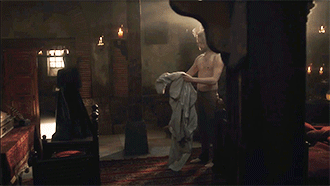




The Last Kingdom 1x02 vs The Last Kingdom 5x03 Alfred the Great and Edward the Elder Parallel
#the last kingdom#thelastkingdomedit#edward the elder#alfred the great#david dawson#timothy inner#eadgifu#sonya cassidy#beocca#ian hart#aethelhelm#adrian schiller
48 notes
·
View notes
Photo

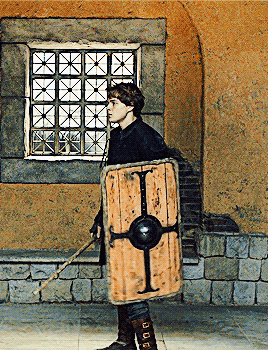





Edward the Elder of The Last Kingdom. ⌜ 2 - ∞ ⸥
#the last kingdom#tlk#tlkedit#thelastkingdomedit#edward the elder#tlk edward#edward tlk#timothy innes#type: gifs#show: the last kingdom#ch: edward the elder#mine: edits#mine: edward
104 notes
·
View notes
Text
Guys it’s hot as hell. Apollo needs to chill out Fr Fr.
Anyway here are gay trains (again mixed with tv girl because I am hallucinating)

#tv#thomas and friends#thomas the tank engine#james the splendid engine#james the red engine#edward the blue engine#edward the elder#edward x james#the sillies
10 notes
·
View notes
Text
edward all of season 2:

#seriously did they even mention him???#how old would he have been???#the last kingdom#tlk#tlk fandom#the last kingdom fandom#tlk edward#edward the elder#tlk rewatch
5 notes
·
View notes
Text

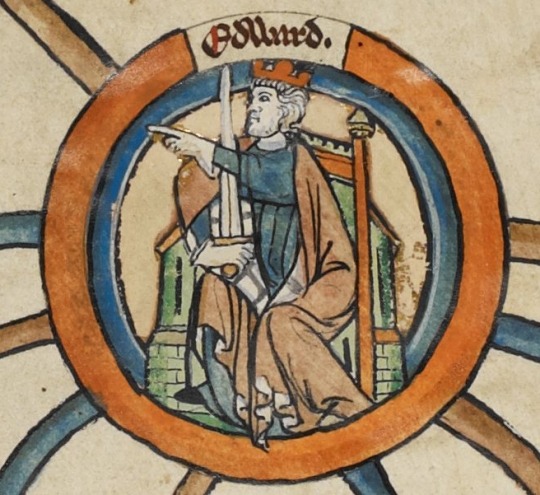
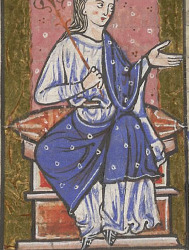

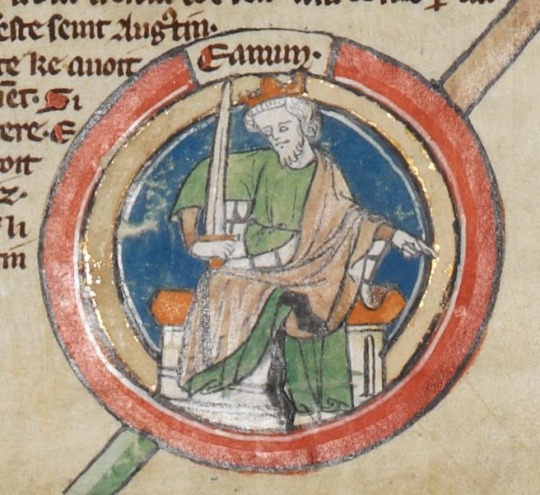





The Bastard Kings and their families
This is series of posts are complementary to this historical parallels post from the JON SNOW FORTNIGHT EVENT, and it's purpouse to discover the lives of medieval bastard kings, and the following posts are meant to collect portraits of those kings and their close relatives.
In many cases it's difficult to find contemporary art of their period, so some of the portrayals are subsequent.
1) Aethelstan I of England (894 – 939), son of Edward the Elder and his wife Ecgwynn
2) Edward the Elder (c. 874 –924), son of Alfred the Great and his wife Ealhswith
3) Æthelflæd of Mercia (c. 870 – 918), daughter of Alfred the Great and his wife Ealhswith
4) Eadgifu of Wessex (? - c. 951), daughter of Edward the Elder and his wife Ælfflæd; and her son with Charles III of France, Louis IV of France (920/921 – 954)
5) Edmund I of England (920/921 – 946), son of Edward the Elder and his wife Eadgifu of Kent
6) Eadwig I "All-Fair" of England (c. 940 – 959), son of Edmund I of England and his wife Ælfgifu of Shaftesbury
7) Edgar I of England (944 – 975), son of Edmund I of England and his wife Ælfgifu of Shaftesbury
8) Eadred I of England (c. 923 – 955), son of Edward the Elder and his wife Eadgifu of Kent
9) Eadburh of Winchester (921/924-951/953), daughter of Edward the Elder and his wife Eadgifu of Kent
10) Eadgyth of England (910–946), daughter of Edward the Elder and his wife Ælfflæd
#jonsnowfortnightevent2023#canonjonsnow#day 10#echoes of the past#asoiaf#a song of ice and fire#historical parallels#medieval bastard kings#bastard kings and their families#aethelstan i of england#aethelstan of england#edward the elder#Æthelflæd#Lady of the Mercians#Eadgifu of Wessex#Louis IV of France#Edith of England#Eadred of England#Edmund I of England#Eadburh of Winchester#Eadwig All-Fair#Edgar of England#aethelflaed of mercia
21 notes
·
View notes
Text










The Last Kingdom Season 3 Costume Designs by Molly Emma Rowe
Photo Sources: 1 2 3 4 5 6 7 8 9 10
#the last kingdom#behind the scenes#costume design#instagram#molly emma rowe#uhtred#edward the elder#king alfred#beocca#skade#aelswith#alexander dreymon#thea sofie loch næss#david dawson#eliza butterworth#ian hart#timothy innes
59 notes
·
View notes
Text
Æthelflæd’s authority initially passed to her daughter, a situation presaged by Ælfwynn’s prominent position in the witness list of S225, issued only three years earlier. Shortly after, though, to borrow the words of Henry of Huntingdon, ‘Edward, acting with regard to expediency rather than justice, disinherited Ælfwynn’ (HA v.17). Henry likely borrows his tone of indignance from the Register, to which he had access in some form. In its entry for 919, reporting Edward’s setting aside of his niece’s claim to lordship over Mercia, the Register declares that she was benumen, or deprived, of authority. Undoubtedly, the Register’s statement in the previous year that Æthelflæd had held ‘lawful authority’ was intended to foreground the legitimacy of Ælfwynn both inheriting and exercising that authority and, ergo, the injustice of Edward setting her aside.
As remarkable an event as the successful passing of hereditary rulership between mother and daughter would have been in the history of early England, it is not entirely certain that this was Æthelflæd’s ultimate design. Ælfwynn was likely approaching 30 years of age when her mother died, and there is no evidence that she had married. This situation was not one that engendered itself to stability of succession. Had Æthelflæd intended her daughter to rule over Mercia, it seems probable that she would have arranged a suitable marriage both to ensure her daughter had a network of independent support, and also to secure the continuation of a Mercian ruling family lineage. There is no hint at such a union in the historical record, nor of any attempt to arrange one.
This, perhaps, is where a hint of West Saxon hegemony throughout Æthelflæd’s reign may be found. If Edward had always intended to absorb Mercia under his overlordship, he may have forbidden his niece to wed: a deliberate strategy to extinguish the Mercian ruling family line and its claim to rulership. And Æthelflæd may have been complicit in Edward’s decision to formally annex Mercia to the West Saxon crown following her death, or at the very least accepting of it. The partisan nature of the Register must always be born in mind and, simply because it presents Æthelflæd as a paragon of Mercian lordship, it does not necessarily follow that this is how she viewed herself. Æthelflæd may have had royal Mercian ancestry, she may have advocated for Mercia and won over Mercian loyalties, but she was still the daughter and sister of West Saxon kings. Æthelflæd’s marriage had been informed by West Saxon dynastic politics, her father’s regional overlordship loomed large over her early years in Mercia, and she proved to be an active partner of her brother through the early tenth century.
In truth, Ælfwynn may only ever have been intended as a placeholder ruler. In this case, her political prominence, as attested in S225, would have been a mere expedient, ensuring that any power vacuum that arose in the event of Æthelflæd’s death would be filled until Edward could make his way to Mercia to claim its throne. At this moment, however, Edward was on campaign nearby in the Danelaw, and he made the formal annexation of Mercia his priority. Upon Æthelflæd’s death in Tamworth, the Chronicle A-text states that:
⁊ þa gerad he þa burg æt Tameworþige, ⁊ him cierde to eall se þeodscype on Myrcna lande þe Æþelflæde ær underþeoded wæs; ⁊ þa cyningas on Norþwealum, Howel, ⁊ Cledauc, ⁊ Ieoþwel, ⁊ eall Norþweallcyn hine sohton him to hlaforde. (And then he occupied the burh of Tamworth, and all the nation in the land of the Mercians which had been subject to Æthelflæd submitted to him; and the kings in Wales, Hywel, Clydog, and Idwal, and all the race of the Welsh, sought to have him as lord.)
There are several matters of note in this passage. Firstly, the word gerad (occupied) is an interesting choice by the annal’s author. This implies that Edward was not certain of his welcome in the Mercian burh, and so took a military approach to the town. The tone this sets for the rest of the entry is one of might, insinuating that the subsequent submissions resulted from Edward’s own power rather than from any arrangement with his sister. The A-text of the Chronicle, though, is no less partisan than the Register, and this entry seems to be deliberately constructed to cast Edward’s new hegemony over Mercia and Wales as a personal conquest. This raises the second matter, that of the Mercian submission. It is worth reiterating that, when the 918 entries of the Register and the Chronicle A-text are read together, there is little doubt that Edward, Æthelflæd, and their armies were collaborating in that year’s Danelaw campaign. In which case, as Maggie Bailey suggests, choosing Edward as leader may not have been difficult for the Mercians: here was a proven and successful military leader already known to the Mercian elites and their armies.
For her part, there is no evidence that Ælfwynn had any involvement with Mercia’s military, nor even that she had truly been given any authority at court prior to her mother’s death. It seems probable that the truth of events lies somewhere between the Register and Chronicle account of events, that Edward attended Tamworth upon news of Æthelflæd’s death, whereupon the Mercian elites chose him as their lord.
— Matthew Firth, Early English Queenship, 850-1000: Potestas Reginae
#Imo it's an interesting alternate interpretation#you (generally speaking) don't have to agree with it but I personally find it convincing and plausible#aethelflaed#aelfwynn of mercia#anglo-saxons#edward the elder#english history#historicwomendaily#women in history#my post#Alternatively Aethelflaed may not have intended for her daughter to succeed her but Aelfwynn may have tried to do so anyway?#Or maybe it was accepted that Edward the Elder would rule Mercia but he and Aelfwynn had disagreements on her future#Which may perhaps explain why it was said that he used force#The alternate explanation to this is just that he was presenting himself as a militaristic ruler as was typical#(Yes I know all of this is pure wild speculation on my part that's why it's in the tags)
8 notes
·
View notes
Text
i have a few more thoughts about aethelstan and edward, woopise. aethelstan wants edward's love and he wants him to love him as him. i also think their conversations when they are in aegelesburg for the first time are very important because they first show aethelstan's resentment over his belief that edward does not love him, but i also think it shows his desire for edward to care for him as a person. because when edward refers to aethelstan at their first visit to aegelesburg it relates very much to aethelstan being his son but in the end he still wasnt there for him as his son yk, he didn't choose him. "your blood is strong" which aethelstan answers with "my skill comes only from my training". but that conversation is also driven by aethelstan disagreeing with him on his method of securing the mercian throne. i also think his desire for edward to like him as him also goes back to season four when they were first introduced, because edward got so emotional about the meeting and his way of handling it was putting distance between them. and we as viewers understand that edward wanted a relationship with his children but it was put down by alfred and aelswith and she even takes responsibility for it and apologizes. however, aethelstan's first meeting with his father that he can remember is met with "place him back to where he was concealed" and we see that this is due to emotionality because he cries and he initially wanted them in his life. aethelstan would probably not have viewed it that way. he would most likely view it as anger, or maybe sadness but not sadness out of love but because of dissatisfaction that he was there. then we get the scene where aethelstan shows him the figure he made, and edward is more open to him in that scene. aethelstan says the figure is a king and says it's a good king like him and then edward smiles at him. and then when aethelstan is a hostage edward saves him. my point is that aethelstan tried to be nice to edward and be there for him when he initially didn't want him around and that paid off so in aethelstan's mind their father-son relationship is transactional. obviously from edward's pov it's not, and he can't discard him when he is a hostage because that's his son yk? thats his boy. in season five a think this point is also shown heavily when he makes aethelstan the leader of the mercian guards. "you speak your mind. i heard you were quite a fighter" and then gives him the position. so it was both acknowledging him as a person but also building on aethelstan's belief that their relationship is transactional because he gets that position from his actions but also because he is his son and edward wants someone he can truly trust. and aethelstan wants his fathers love, i believe that is what he means in his conversation with uhtred "i also wish to serve my father. he needs loyalty. and i.. i need-". because i don't think that sentence is based on ambition because the next episode aethelstan says to uhtred that he wants to go back to his old life and wishes they didn't see him as a leader and uhtred tells him that it's impossible.
#i dont know if this makes any sense#if it doesn't it's because im sick#you can see that im really into tlk atm#the last kingdom#tlk#aethelstan#tlk aethelstan#tlk edward#edward the elder
5 notes
·
View notes
Text
Killed my boy Edward offscreen 😔 I wanted to see his rage as he died - I know that man did not go out peacefully
#i just wanted to see him for just a moment#edward the elder#seven kings must die spoilers#seven kings must die
21 notes
·
View notes
Text






28 notes
·
View notes
Text
twink to dilf pipeline is crazy


33 notes
·
View notes
